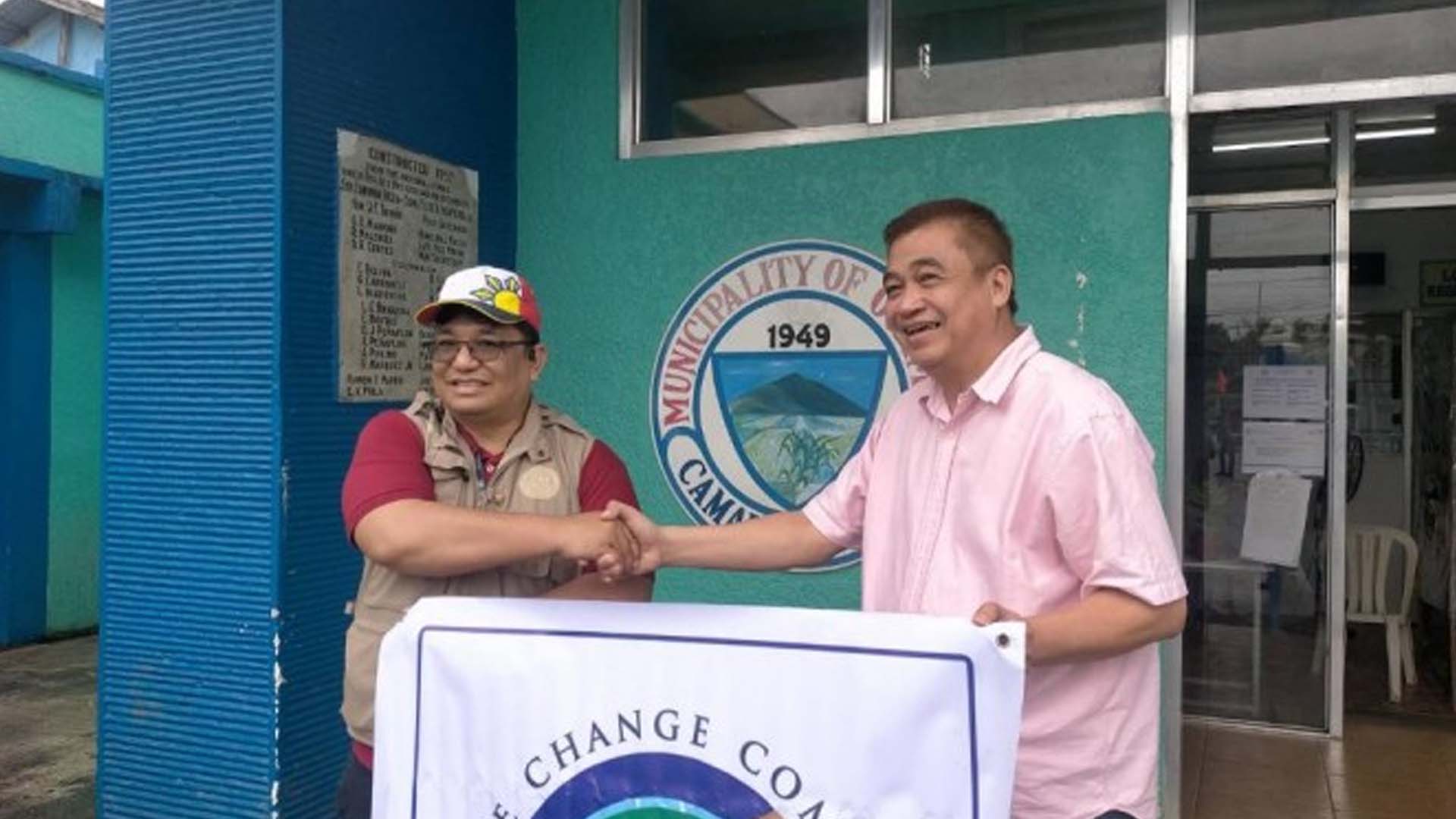The Climate Change Commission (CCC) is eyeing to turn the municipality of Ocampo in Camarines Sur into Bicol Region’s “food basket” by prioritizing agro-industrial initiatives to ensure food security.
In a press release, the CCC announced that its commissioner Albert de la Cruz Sr. recently met with Ocampo, Camarines Sur Mayor Ronald Allan Go, Presidential Adviser for Bicol Affairs Undersecretary Rex Villegas as well as private and local climate action proponents, and other municipal officials to discuss measures that would link the municipality with CCC.
“The linkage between Ocampo and the Commission headed by Secretary Robert Borje will help the town as well as other local government units (LGUs) to gear up and become the country’s food basket, particularly in the Bicol Region,” the CCC said.
Dela Cruz conferred with Go on the possibilities of ensuring safe and compliant slaughterhouse facilities in the municipality through the National Meat Inspection Service.
They also discussed ways the CCC could assist in the formulation of a comprehensive land use plan that would benefit his constituents and the whole country.
Dela Cruz has repeatedly stressed the importance of partnerships with LGUs in speedily implementing climate action across the archipelago to pursue sustainable development.
These partnerships, he said, could create more green jobs and implement other pro-environment efforts that would mitigate the impact of climate change and help the country adapt and gain benefits from the phenomenon.
“Climate action has no political color like what our beloved President ‘Bongbong’ (Marcos) has repeatedly said. It is an issue we should all face in unity and with each other’s help,” Dela Cruz said.
He also underscored the need to consolidate partnerships between the CCC and the Department of Agriculture for more agricultural ventures that would assist LGUs and other stakeholders to establish a whole of national and community approach to addressing climate change and global warming.
Agro-industrial initiatives are among the initiatives anchored in the government’s Local Climate Change Action Plan, an action plan formulated by local governments to address climate change concerns.
The LCCAP focuses on both climate change adaptation and mitigation and describes how LGUs plan to respond to the impacts of climate change and mainstream them into local development plans.
Climate action advocacy is among the top priorities under the administration of President Ferdinand R. Marcos Jr. Camarines Sur is known for having the highest number of farms and the largest farm area in the Bicol Region.
Green and edible vegetation
Meanwhile, Dela Cruz called on the business sector, public officials, and private entities to allocate funding for programs and projects that promote the propagation of green and edible vegetation.
According to the CCC, edible landscaping (EL) is an innovative concept that could promote green and edible vegetation and through it, various principles of landscape design are combined with existing technologies for small-scale crop and utilizes vegetables, herbs, and fruit crops as major softscape materials to substitute for the ornamental plants commonly used in conventional landscaping.
“Even though EL is focused on food availability at household level, it is also intended to increase interest in the utilization of endemic edible plants and greening of urban spaces to alleviate environmental problems. Moreover, surplus crop products can be marketed to generate additional income,” Dela Cruz said.
To date, EL is being intensively promoted in the Philippines and is open for further development to cater for a wider scope of crop production. (PNA)







